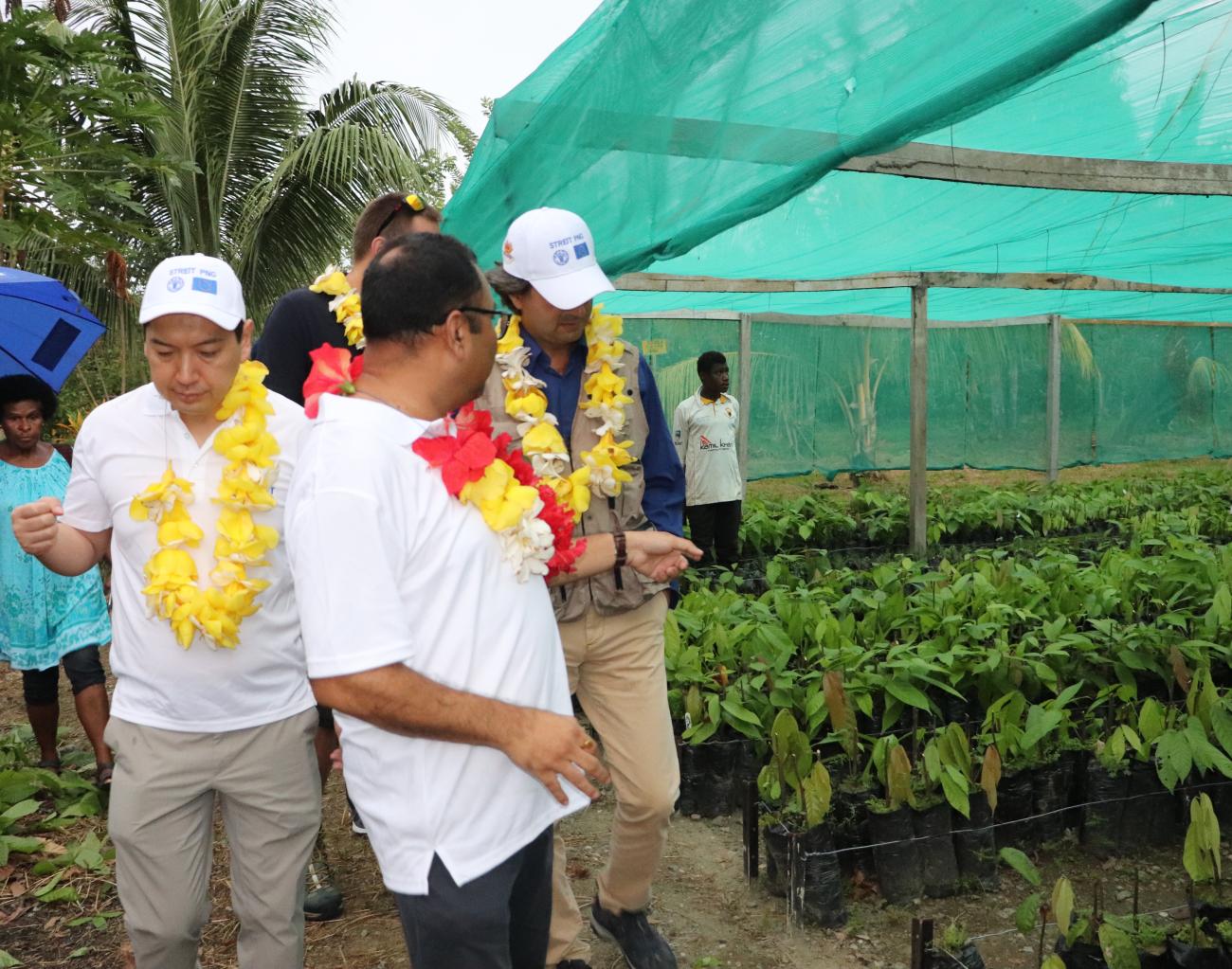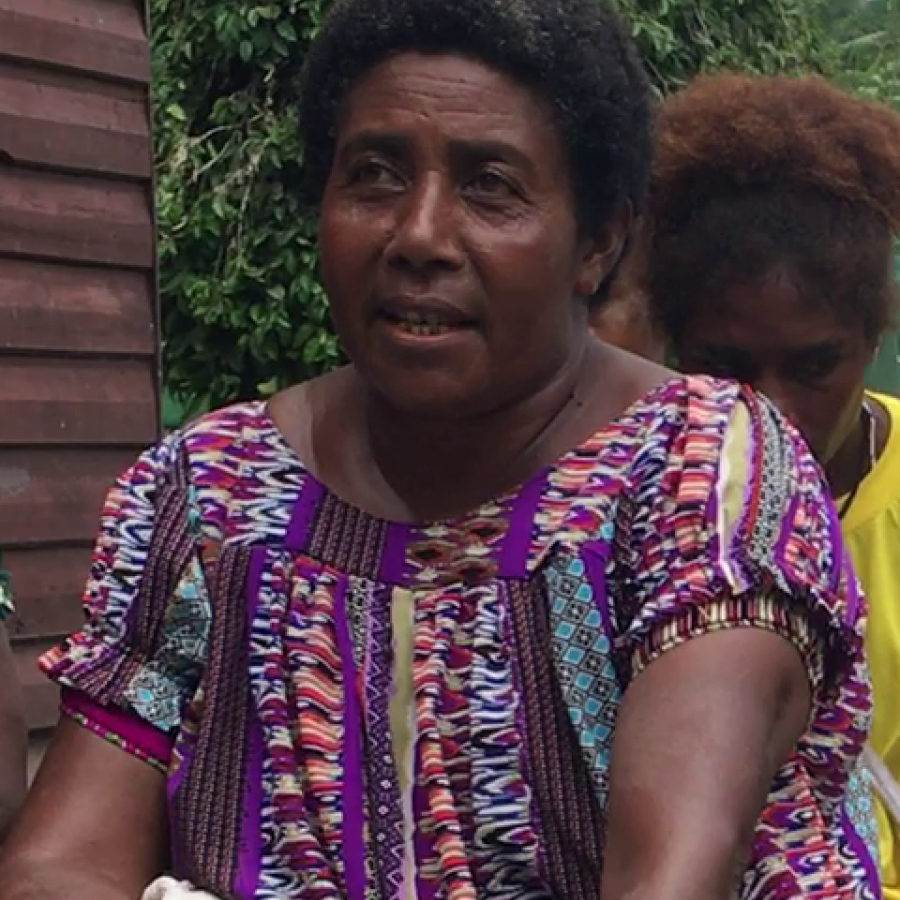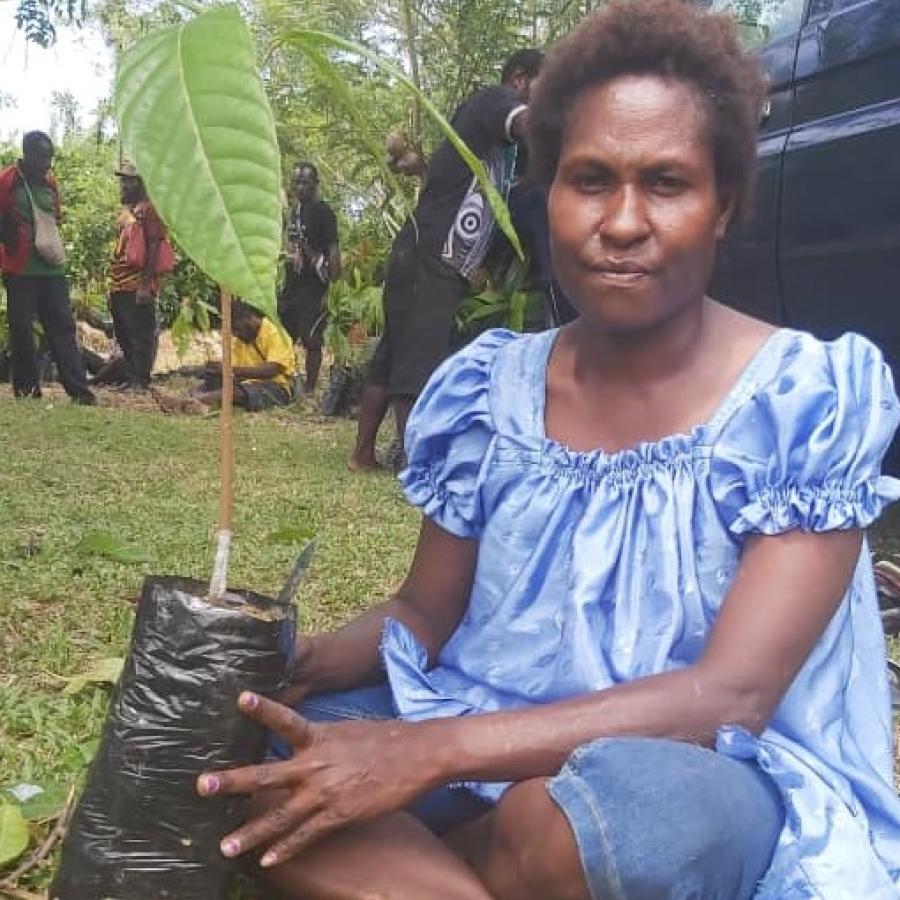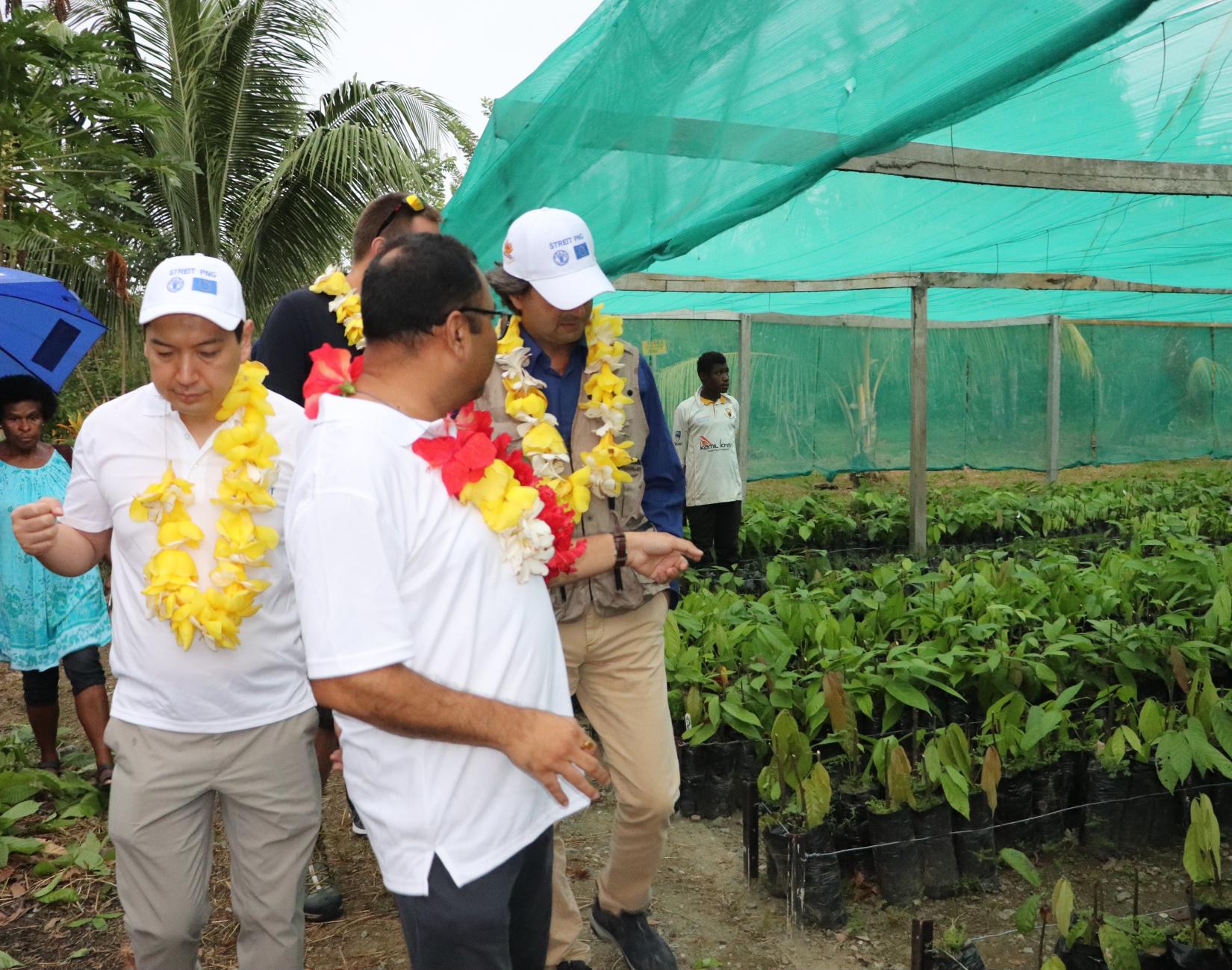STREIT for the Sepiks

Supporting rural developing in the East and West Sepik provinces.
Sussie Noguru is a woman on a mission. From Banak village, Dagua LLG, East Sepik Province, Susie is organising cocoa farmers to participate in the STREIT PNG (Support to Rural Entrepreneurship, Investment and Trade) programme, a rural development programme that is supporting communities to revitalize existing economic opportunities.
Sussie’s introduction to STREIT and the opportunities it presents came when she took part in a training to ‘clone’ cocoa trees.
With 2 hectares of cocoa trees to rehabilitate, Sussie is “grateful that our provincial government has partnered with the program to help us learn these skills.”

The K340 million project is the largest European Union funded program in the Pacific and focuses on the value-chain development of cocoa, vanilla and fisheries in the Sepik provinces with a specific focus on women, youth and rural development.
European Union Ambassador to Papua New Guinea, H.E. Mr Jernej VIDETIČ said of the funding, “Team Europe is proud to contribute to a project which, although starting in difficult conditions because of the COVID-19 pandemic, has already made some good progress and given renewed opportunities and prospects to the citizen of PNG. Together with the Government we are assessing the possibility to fine tune the activities to provide added support to the rural population to lessen the burden induced by the restriction of international movement of goods for export-oriented activities.”
Sussie is now an active model farmer and organizes farmers in her village to be registered with the Investment Promotion Authority and the Cocoa Board, so that they can receive support under STREIT PNG.
Over in West Sepik Province a formidable couple, Martin and Scholar Wiro of Bini village, Palai LLG, Nuku District are wasting no time putting their new skills to use.
Having successfully budded 32 cocoa seedlings, the Wiros will be rehabilitating their four-hectare cocoa plantation and are looking forward to an increase in production and income.
“Cocoa is an important source of income for my family,” said Scholar. “With our new skills we will replace ageing cocoa trees and with increased income we will pay for our children’s school fees. My husband and I want our children to have a better education and a good future”.

The cocoa propagation trainings in the two Sepik Provinces were conducted by the Food and Agriculture Organization of the United Nations (FAO) in collaboration with the Cocoa Board and the Provincial Department of Agriculture and Livestock. These trainings are aimed at increasing sustainable production and inclusiveness of the cocoa value chain by building the capacity of farmers. Participants learn the different budding techniques, skills to assess and rehabilitate aging and infected cocoa trees with the cocoa pod borer (CPB) tolerant cocoa clone seedlings.
A staunch advocate of the STREIT PNG programme, East Sepik Governor Allan Bird describes the 5-year programme as ‘the new development paradigm for the Sepiks.’ He has experienced the impact of a booming vanilla industry in East Sepik and wants a bigger and better come back for his province.
The Food and Agriculture Organization of the United Nations is leading the UN support in implementing STREIT. During a recent visit to East Sepik by United Nations Resident Coordinator, Mr Gianluca Rampolla, said he believes this program will go a long way in not only rehabilitating and upgrading existing cocoa, vanilla and fisheries farms in the province, but also help create bigger and better farms that have more value for money in global markets.
Mr. Rampolla was accompanied by the FAO Papua New Guinea Country Representative, Mr. Ken Shimizu, and a team from the National Department of Planning d for the duration of the mission to Wewak and Vanimo. The objective of the mission to the Sepik provinces was to assess and monitor the impact of COVID-19 on the progress of the EU-funded STREIT PNG programme, and the preparedness and impact of COVID-19 on food security to explore reprioritization of interventions in the Sepiks.
“We are excited to be part of a programme that will transform lives, and set a milestone in achieving the government’s objective of diversifying its economic base through agrobusiness . In our discussion with Provincial Governments and communities, we have identified interventions that will have immediate impact on the livelihoods of bordercommunities affected the most by existing restrictions ,” Mr Rampolla said.
During their trip, Mr. Rampolla and Mr Shimizu visited the Hawaiian Cocoa Nursery, where 28,000 cocoa seedlings are currently in budding under STREIT that will soon be distributed to eager farmers.

In West Sepik, Governor Tony Wouwou, also a man familiar with the potential of the agricultural industry, not only shares similar sentiments to his colleague Governor Bird, he is working closely with the East Sepik Governor to ensure that both provinces fully benefit from the STREIT PNG programme. On separate occasions during the mission, Mr Shimizu was able to ascertain the relevance of this programme in discussions with Governor Bird and Governor Wouwou by reiterating that “STREIT is quite a unique programme and is unlike any other traditional FAO programmes as there are soft and hard components to this program that enables complete development of the value-chain of an agriculture commodity”. Hence, there is immense opportunity to see tangible transformations in both East Sepik and Sandaun Provinces through this agriculture value chain development programme.
With the multifaceted layer of the project that goes beyond just agriculture development, the UN as an implementing partner to the government is taking a multi-agency approach in supporting the roll out of STREIT PNG. Skills and capacities from FAO, United Nations Development Programme (UNDP), International Labor Organization (ILO), United Nations Capital Development Fund (UNCDF) and International Telecommunication Union (ITU) will complement the government’s drive to ensure that families such as Sussie’s and the Wiro’s achieve their dream of a sustainable economic future.





